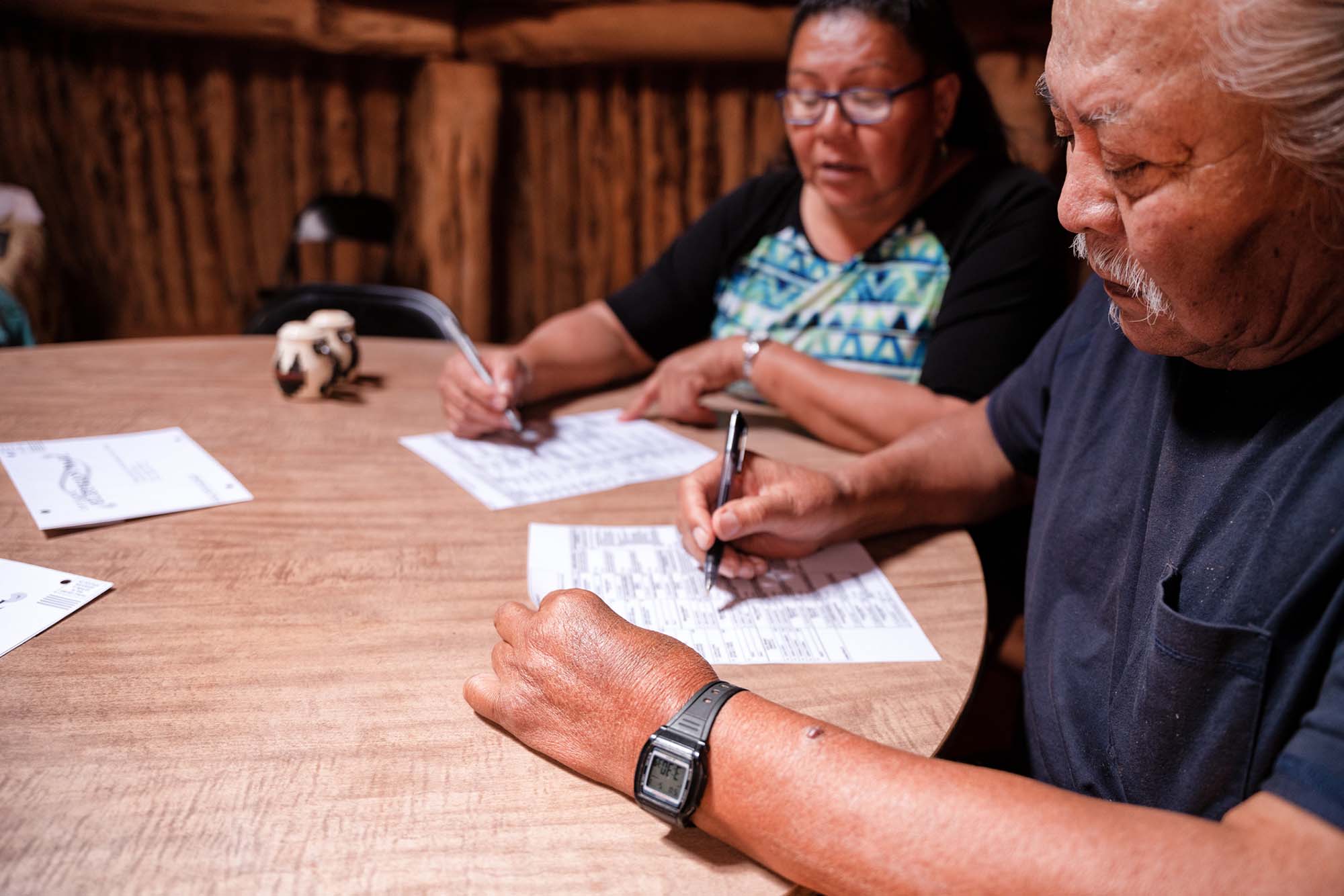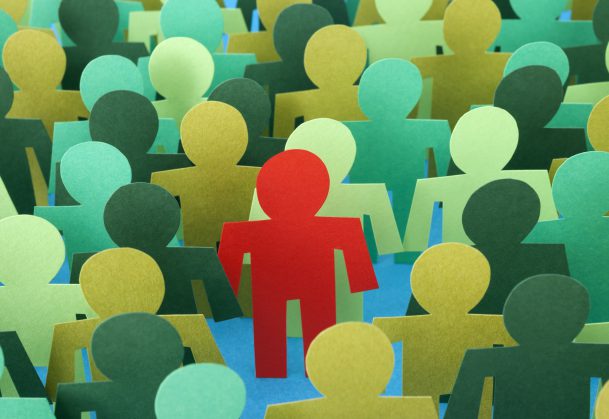Native Americans’ Awareness of Omission and Discrimination Fuels Civic Engagement

Derogatory stereotypes constitute a clear form of discrimination, but an absence of information about a group in mainstream society can also communicate a lack of respect for a community. That is the case for Native Americans, who are often underrepresented in media and policy discussions. In a recent Psychological Science study, researchers found that Native American adults who identified more strongly as Native were more likely to notice group omission and discrimination, prompting increased civic engagement.
“For Native individuals who consider being Native an important aspect of themselves and care about their communities,” an absence of Native representations suggests to them “that mainstream society discriminates against Native Americans as a group,” said J. Doris Dai (University of Washington), lead author of the study. “In response, Native individuals leverage civic engagement to amplify their voices and address discrimination.” Dai and colleagues used a series of four studies with over 11,000 participants to examine the relationship between the strength of a person’s Native American identity, perceptions of omission and discrimination, and civic engagement.
In the initial pilot study, the researchers used existing data from 500 participants in the Indigenous Futures Survey, a 15-minute online survey in which Dai and colleagues asked a total of 6,461 Native American individuals about their needs and political perspectives. As part of this survey, participants reported if they had engaged in civic activities such as signing petitions and grassroots organizing in the past 5 years. They also rated on a scale of 1 to 5 how important being Native American was to their sense of identity and the extent to which they perceived Native Americans to be discriminated against and underrepresented in public life.
Although the pilot study did not find a strong relationship between the strength of participants’ Native American identity and their civic engagement, strong Native identity was associated with perceiving greater omission of and discrimination against Native Americans—which was in turn associated with higher civic engagement.
Dai and colleagues built upon these findings through a similar survey of 3,586 Native American participants. This time, in addition to surveying respondents on their civic engagement, they asked participants not only how much they noticed Native omission in general but also to respond to a specific instance of omission during CNN’s 2020 election coverage. In that instance, graphics about voting by race highlighted White, Latino, Black, and Asian voters and lumped Native Americans into the “something else” category.
Respondents who identified more strongly as Native American were also more likely to report being involved in get-out-the-vote activities during the 2020 presidential election. Additionally, stronger Native identification was associated with recognizing more general and specific Native omission, which was in turn associated with being more engaged with the election.
Related research on cultural identity and bias
-

Presenting Information About Mental Health in a Second Language Could Help Counter Cultural Norms Against Treatment
Bilingual people from cultural backgrounds in which mental health is a taboo topic may be more open to treatment when they hear information in their second language.
-

The Science Behind Cultural Stigma
In ancient Greek and Latin, a stigma was a brand that marked a person, such as a slave, who was seen as inferior. Today, the word “stigma” has come to signify the invisible mark made
-

Back Page: Structural Stigma and the Health of Marginalized Communities
Katie Wang discusses methods to address the damaging effects of social oppression and structural stigma on marginalized communities.
Dai and colleagues replicated these findings through a subsequent study of the 5,961 remaining respondents from the Indigenous Futures Survey, which also indicated that higher perceptions of discrimination were associated with greater civic engagement. Furthermore, higher Native identification and perceptions of omission and discrimination were found to be associated not only with greater civic engagement over a 5-year period but also with engagement in higher risk and higher commitment civic activities such as attending protests and campaigning for candidates. The researchers also identified the specific pathway through which this relationship likely occurred: Higher Native identification increased recognition of omission, which increased perceptions of discrimination, which ultimately increased civic engagement.
“Our research is the first to demonstrate that to the extent that Native peoples identify with their group, recognition of being omitted from society promotes a greater sense of being discriminated against and further motivates engagement in civic activities to help change the status quo,” Dai and colleagues wrote.
Finally, in a third study of 1,609 respondents, Dai and colleagues found that participants who identified more strongly as Native American were also more likely to report their intention to engage in civic activities over the next 12 months. Once again, respondents’ perceptions of omission and discrimination mediated this effect.
“These findings suggest that Native omission is a critical component contributing to Native peoples’ understanding of their group’s position in society and that civic engagement may be one way they can contend with this omission,” Dai and colleagues wrote.
In future research, Dai said she would like to explore what motivates non-Native people to omit Native Americans, as well as the psychological processes non-Native people must overcome to mitigate this omission. As part of this research, Dai plans to investigate how Native omission may function as a form of implicit bias based on non-Native people’s unconscious belief that Native Americans no longer exist in modern society.
Reference
Dai, J. D., Yellowtail, J. L., Munoz-Salgado, A., Lopez, J. J., Ward-Griffin, E., Hawk, C. E., LeBlanc, J., Santos, N., Farero, A., Eason, A. E., & Fryberg, S. A. (2023). We are still here: Omission and perceived discrimination galvanized civic engagement among Native Americans. Psychological Science. https://doi.org/10.1177/09567976231165271
Feedback on this article? Email [email protected] or login to comment. Interested in writing for us? Read our contributor guidelines.





APS regularly opens certain online articles for discussion on our website. Effective February 2021, you must be a logged-in APS member to post comments. By posting a comment, you agree to our Community Guidelines and the display of your profile information, including your name and affiliation. Any opinions, findings, conclusions, or recommendations present in article comments are those of the writers and do not necessarily reflect the views of APS or the article’s author. For more information, please see our Community Guidelines.
Please login with your APS account to comment.